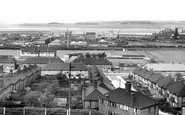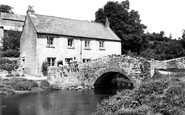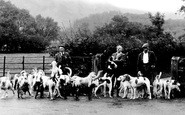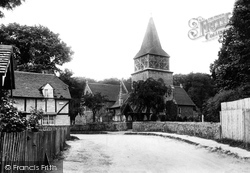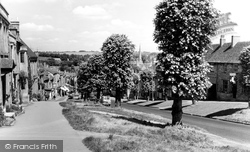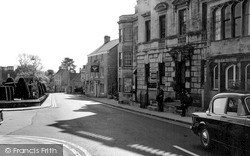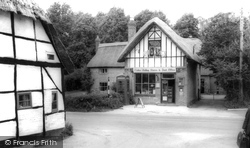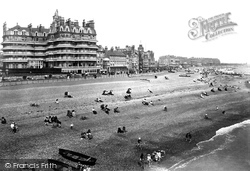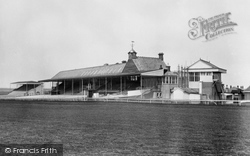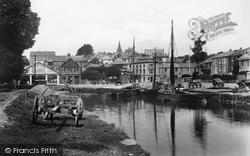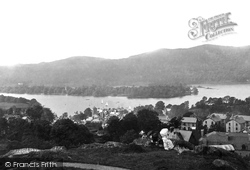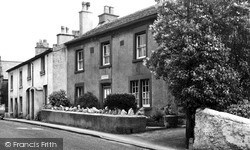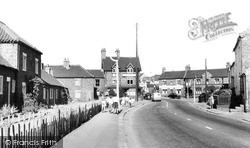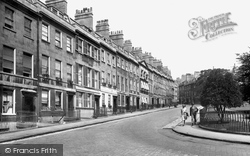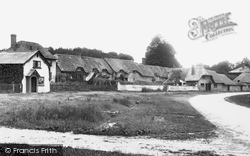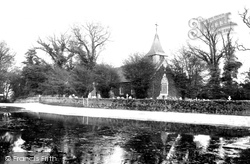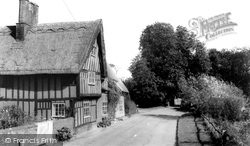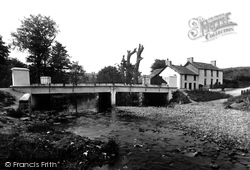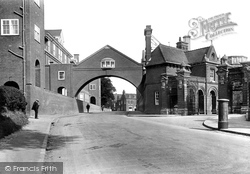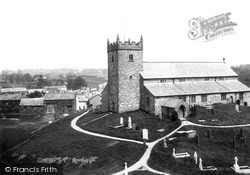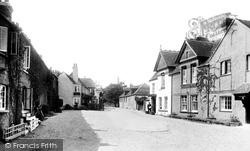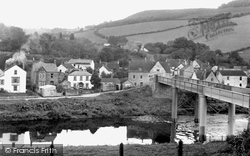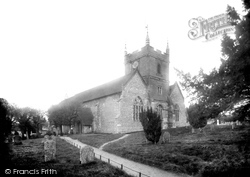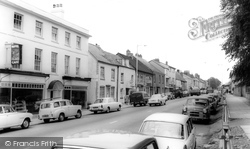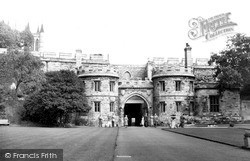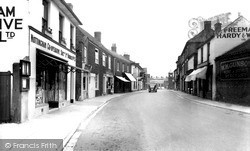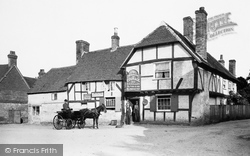Places
3 places found.
Those places high-lighted have photos. All locations may have maps, books and memories.
Photos
68 photos found. Showing results 1,781 to 68.
Maps
12 maps found.
Books
15 books found. Showing results 2,137 to 15.
Memories
7,564 memories found. Showing results 891 to 900.
Rivacre Baths.
For those who never saw (or may have forgotten), the photo shows the view you had after coming in through the main entrance. The large fountain can be seen in the foreground, and was enjoyed by many children as they ran around ...Read more
A memory of Little Sutton in 1947 by
Kent Butchers
Year: 1930s Kent Butchers Does anyone have memories of the Kent Butchers during the 1930s in Lewisham Market? I have a photo taken about Christmas time 1936 of their shop. It is decorated with rows of turkeys and other meats, with ...Read more
A memory of Lewisham in 1930 by
Happy Childhood Memories
I have very fond memories of living in Winscombe as a child, in fact they were some of the best years of my life. I was living in Yadley Lane, and loved to take walks up the old railway line which ran past our house, in ...Read more
A memory of Winscombe in 1978 by
Married Quarters Inkerman Road
My dad was a military policeman stationed at Inkerman Barracks and we lived at No. 1 MSQ Inkerman Road. It was great fun there, the woods over the road, next to the Victoria Cafe (all now gone). To the side of No. 1 ...Read more
A memory of Knaphill in 1959 by
Delivering Our Daily Bread
The picture shown is of Russell Road which runs left to right centre of the picture. Every day except Sunday during the early 1960s I used to deliver bread all around Weston Point and remember well reversing my Co-op van ...Read more
A memory of Runcorn in 1961 by
Growing Up In Dartford
I lived in Dartford from 1955 (born in West Hill Hospital) til 1977 when I moved to Wales. My dad was manager of the"Bacca Pouch" next to the old Post Office , and opposite the back entrance to the Co-op. He then had the ...Read more
A memory of Dartford in 1955 by
Happy Days At Mill Bridge
Hi to anyone looking at this photo, I lived just up the road at Valley Cottages and used to play by the bridge, we all sat on the bridge wall and had our photograph taken. I am on the right with wellington boots ...Read more
A memory of Bishop's Tawton in 1955 by
A Tiny Hamlet Lost In Time
The year was 1970. Myself and a friend were typical 15 year old youths of the time, well, typical for our type of neighborhood. We had long hair, pierced ears, denim jeans and jackets and owned but a couple of shillings ...Read more
A memory of Trelights in 1970 by
Palace How Lane End
I was brought up at Palace How and the gentleman with the moustache is my late father, Leslie Leo Cunningham. We had the village Post Office and my late mother, Mary Anne Cunningham, was the Postmistress - I have a show ...Read more
A memory of Loweswater by
Cranford 1975 80
Hello. I used to live on Berkeley Ave. I remember the parade of shops. There was a row of Co-op shops, baker, butcher, mini market and I think a green grocer. After the shops was an alley where there was a milk company, I think ...Read more
A memory of Cranford in 1978 by
Captions
2,501 captions found. Showing results 2,137 to 2,160.
The village church is dedicated to Saint Peter and Saint Paul, and parts of it date back to the 13th century. It actually stands inside the grounds of Clandon Park.
The High Street runs down from the A40 to Burford Bridge and the River Windrush. The upper end is lined with pollarded lime trees.
In 1905 the world opened up to isolated villagers when a motor bus service from Stroud to Painswick was started by the Great Western Railway.
Another classic English village, Nether Wallop assumed a 1950s feel during the 1980s when it was chosen as one of the key locations in the BBC series Miss Marple.
Beyond the Queens Hotel with its tiers of balconies, which opened in June 1880, are one or two of the surviving buildings of the original Sea Houses, one of the four hamlets of pre-Victorian Eastbourne
Although the grandstand is strangely devoid of people and activity, this picture shows what Newmarket is all about: horse racing.
Legend relates that a Saxon king, on a progress through his realm, wondered how he could cross a creek with- out getting his feet wet.
The rocky knoll of Biskey Howe, rising abruptly above the built-up area of Bowness, has long been a favourite viewpoint – from here a large proportion of the lake is visible.
Washington House, on the main street, was the home of the forebears of American President George Washington. The stars and stripes flag is flown from the church tower every 4 July.
This is a very interesting view, because the old Red Lion Inn in the centre must have been demolished very soon after this photograph was taken.
Back uphill, past Marlborough Buildings, we reach St James Square, altogether more conventional.
During the 1830s this pretty village was the scene of a major uprising among farm labourers, with angry mobs burning hayricks and destroying machinery.
The church of St Mary has some parts that are medieval, but most of what can be seen today dates from its rebuilding between 1859 and 1860 under the supervision of Henry Woodyer.
The Old Forge dates from c1500; note the blocked mullion window on the side, the double-jettied front and the octagonal 16th-century chimney stacks.
Entering the hamlet, the main A483 crosses the River Camarch en route to Builth Wells.
Marlborough College, the prestigious public school, was founded in 1843 close to the river Kennet and the site of the old castle. An enclosed bridge crosses the A4 Bath road.
The parish church of St Michael is one of the most interesting in the Lake District.
From the High Street, Ferry Lane leads down to the river and the former ferry point. We are looking back up the lane with the river behind us.
We are looking back across the Wye to the village. A quay has been constructed in front of Quay House on the left, where there appears to be a good fire burning in the grate.
The church contains many brasses of men and women who lived in the 15th and 16th centuries; the chancel has delicate 15th-century screens, Jacobean altar rails and low arcades dating back
Here we see the eastern end of the High Street, with the wall of the Congregational Church on the right.
Inside the Castle, the photographer looks back to the gatehouse, which is basically 14th-century over a Norman archway, although the drum towers on this side are early 19th-century.
In this view we look back towards the Market Place along High Street with the Angel and the Red Lion in the middle distance on the left.
One of the oldest pubs in this corner of Hampshire, the Feathers is a sturdy, oak-beamed building dating back to the 14th century.
Places (3)
Photos (68)
Memories (7564)
Books (15)
Maps (12)

